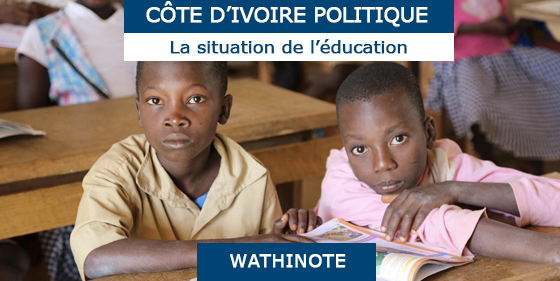Authors : Mary-Claire Ball and Kaja Jasinska
Affiliated organization : University of Toronto
Type of publication : Article
Date of publication : March 30, 2022
*Wathinotes are excerpts from publications chosen by WATHI and conform to the original documents. The reports used for the development of the Wathinotes are selected by WATHI based on their relevance to the country context. All Wathinotes refer to original and integral publications that are not hosted by the WATHI website, and are intended to promote the reading of these documents, which are the result of the research work of academics and experts.
In countries where more than one language is spoken, education systems are challenged with choosing which language to use in schools. Learning in a new language is an especially difficult task for a child. Instead, learning in a language a child already speaks may better support schooling and literacy outcomes.
A common approach in multilingual communities is bilingual education, where instruction occurs in both a mother tongue and an official language. There is abundant evidence that early experience with two languages, be it at home with bilingual family members or at school in a bilingual education programme, may benefit children’s spoken language skills. These skills – vocabulary and the awareness of the sounds of language – predict children’s early reading abilities. This evidence has been found in sub-Saharan Africa and beyond.
These skills – vocabulary and the awareness of the sounds of language – predict children’s early reading abilities
However, we wanted to know more about how home and school language environments support skilled reading in multilingual communities with low literacy rates, such as in rural Côte d’Ivoire. We also wanted to understand what factors might influence literacy outcomes in such contexts.
We conducted research in Côte d’Ivoire in 2016 to 2018.There are over 70 languages spoken in Côte d’Ivoire, yet French remains the language of instruction in most primary school classrooms.
The research
Most rural households in Côte d’Ivoire don’t speak French, so many children are first exposed to the French language when they start school. This mismatch between the language spoken at home and the language spoken at school may contribute to the fact that 10% of children repeat grades, only 73% of children remain in school through the end of primary, and only 53% of those aged 15 to 24 are literate.
Children from bilingual homes outperformed their peers from monolingual mother tongue-speaking homes on all of the language and reading tasks in both languages
Côte d’Ivoire initiated a national-scale programme called Projet École Intégrée in 2001, featuring classroom instruction in a mother tongue language alongside French. Our research team was interested in how children’s spoken language skills and reading skills differed according to home and school situations in rural, multilingual communities with low literacy rates.
As we expected, based on prior research linking early bilingual experience to advantages in language and reading skills, children from bilingual homes outperformed their peers from monolingual mother tongue-speaking homes on all of the language and reading tasks in both languages.
Children attending bilingual schools performed worse on the language and reading tasks in both languages compared to children attending traditional French-only schools
Children from bilingual schools repeated grades less frequently than children from traditional French-only schools. This suggests that instruction in the mother tongue may have helped them better understand the classroom curriculum. But overall, children attending bilingual schools performed worse on the language and reading tasks in both languages compared to children attending traditional French-only schools.
Teachers from bilingual schools faced barriers that limited their ability to provide high-quality bilingual instruction. They had to deal with perceptions within their communities that the mother tongue was not an effective tool for learning. As one fifth grade teacher from the village of Moapè told us, they also lacked adequate resources for teaching in mother tongue languages.
These constraints on bilingual education quality may have prevented children’s early literacy skills from thriving. Therefore, it’s not enough to implement a bilingual education programme and expect learning and literacy outcomes to improve. Education systems should invest in bilingual education programmes to ensure that teachers have the resources they need to provide high-quality bilingual instruction.


Commenter